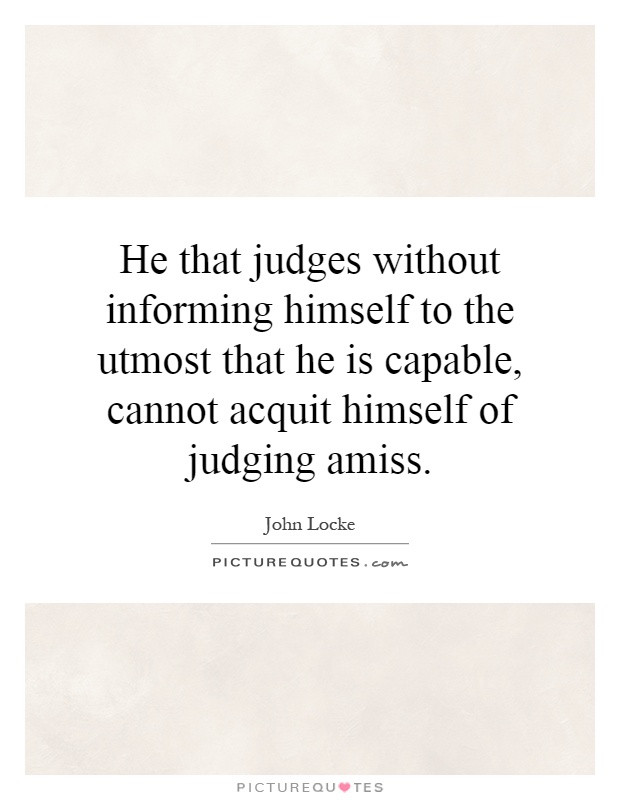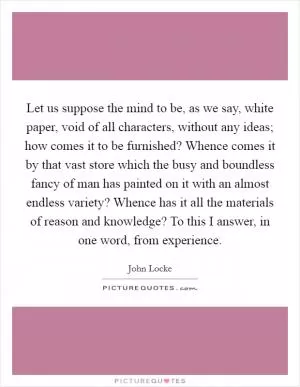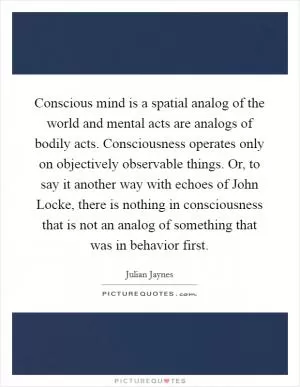He that judges without informing himself to the utmost that he is capable, cannot acquit himself of judging amiss

He that judges without informing himself to the utmost that he is capable, cannot acquit himself of judging amiss
John Locke, a prominent English philosopher, is known for his contributions to the fields of political theory, epistemology, and education. One of his key beliefs was the importance of informed judgment and the necessity of seeking out all available information before making a decision. This idea is encapsulated in the quote, "He that judges without informing himself to the utmost that he is capable, cannot acquit himself of judging amiss."Locke believed that individuals have a moral responsibility to seek out as much information as possible before passing judgment on a person, situation, or idea. This is because making uninformed judgments can lead to misunderstandings, biases, and unfair treatment. In order to make fair and just decisions, one must gather all relevant facts, consider different perspectives, and critically evaluate the information at hand.
In the context of Locke's philosophy, the quote emphasizes the importance of intellectual curiosity, open-mindedness, and critical thinking. It encourages individuals to question their assumptions, challenge their beliefs, and be willing to revise their opinions in light of new evidence. By engaging in a process of continuous learning and self-reflection, individuals can develop a more nuanced understanding of the world around them and make more informed judgments.
Furthermore, Locke believed that informed judgment is essential for the functioning of a just society. In his political writings, he argued that governments should be based on the consent of the governed and that individuals have a right to life, liberty, and property. In order to protect these rights, it is necessary for individuals to be well-informed and actively engaged in the political process. By educating themselves about the issues at hand and critically evaluating the actions of their leaders, citizens can hold their government accountable and ensure that decisions are made in the best interests of the people.












 Friendship Quotes
Friendship Quotes Love Quotes
Love Quotes Life Quotes
Life Quotes Funny Quotes
Funny Quotes Motivational Quotes
Motivational Quotes Inspirational Quotes
Inspirational Quotes